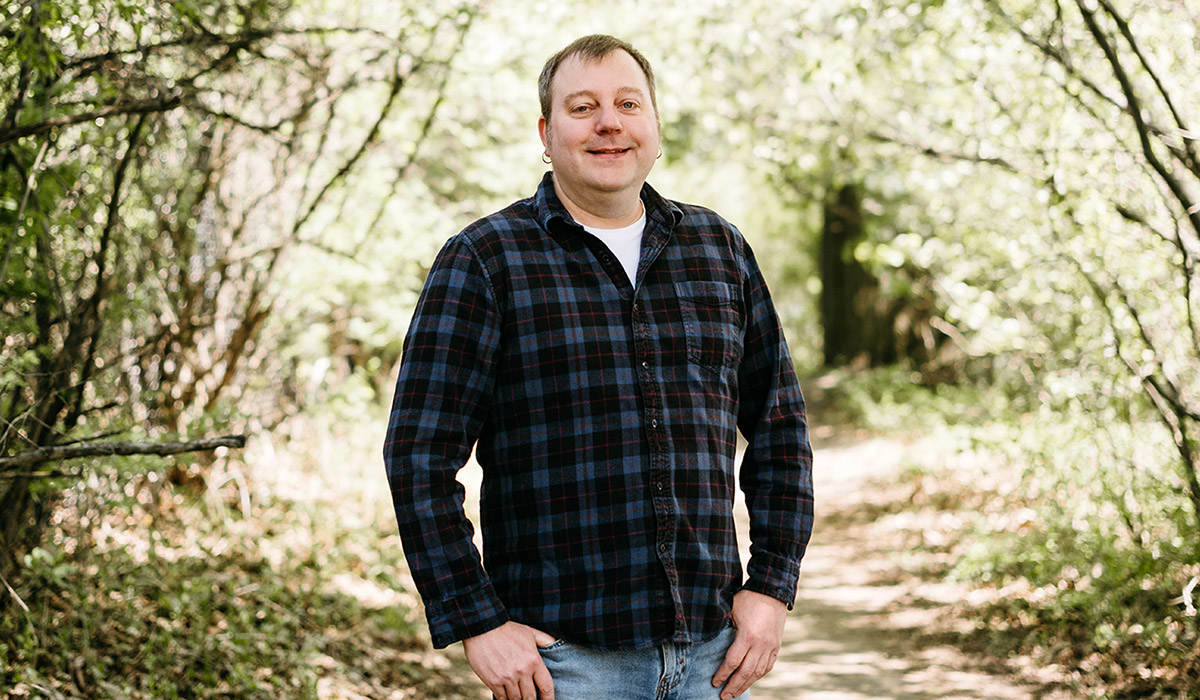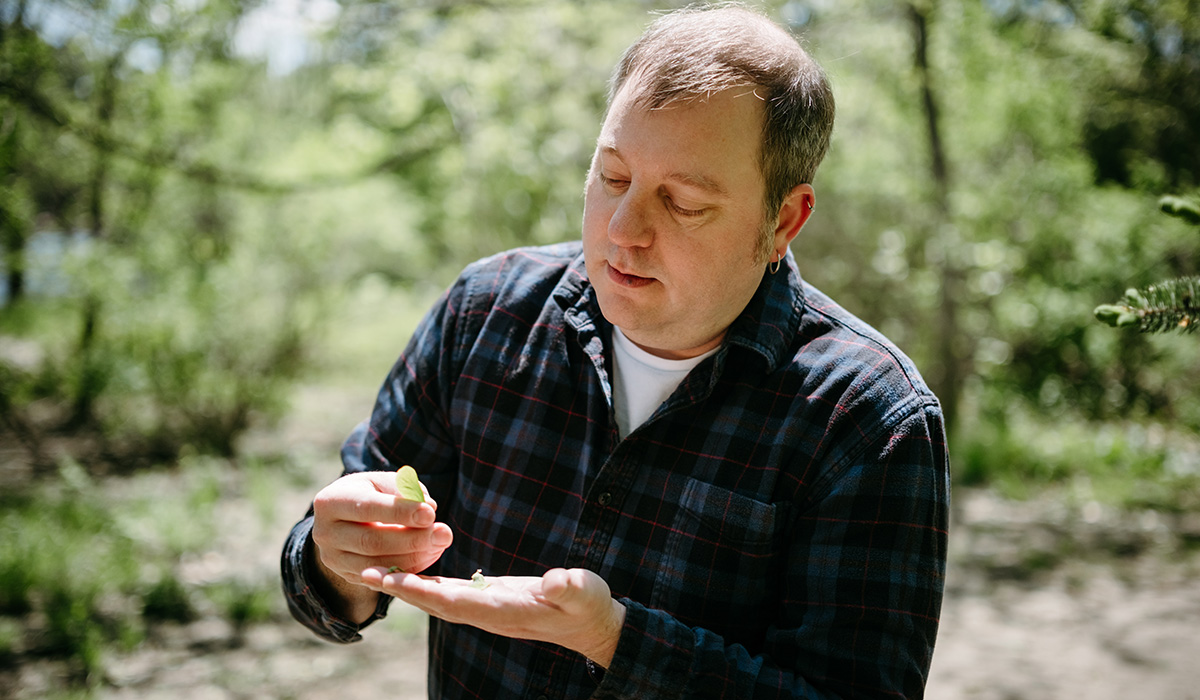And while there’s no simple antidote to any of these issues, one research lab at Carleton University is turning the scientific spotlight on the benefits nature can provide to our well-being.
Carleton psychology professor John Zelenski is an internationally renowned expert on the links between nature and happiness. As director of the CU Happiness Laboratory, he has found that one of the most powerful pathways to well-being is spending time immersed in the natural world.
Zelenski — who’s interested in individual differences in happiness and how personality manifests itself “in the moment” as emotional, behavioural and cognitive processes — says gleaning insights into happiness leads to advantages beyond the individual.

“Happiness is something that everybody values,” he explains.
“Simply put, we would prefer to be happy rather than not. The goal of studying happiness is to derive benefit for people generally, so we can pursue our best lives.”
Zelenski says that while happiness can mean different things to different people, at its core it involves more pleasant than unpleasant moments in life and a general feeling of satisfaction. Measuring happiness — while not simple — involves subjects self-reporting their sense of well-being.
“We try to design surveys and scales that have good statistical outcomes,” explains Zelenski. “There’s a lot of research we can trust about how we ask questions and in what order, relating to emotions and life satisfaction. And we have sneaky tools as well, such as looking at facial expressions.
“Ultimately though, it is subjective. If you were to tell me you felt happy or unhappy and a blood test said otherwise, I would still believe you.”
Boosting Happiness: Accessible Benefits of Nature
One of the more accessible options for boosting happiness is engaging with nature, according to Zelenski. Nature can provide a sense of balance, and connecting with it in meaningful ways is associated with an increase in environmentally responsible behaviour.
“There’s good evidence that spending time physically in nature and being mindful about it has positive results,” says Zelenski.
“It’s something that’s embedded in us and seems to go back to our evolutionary history, meaning that because we came from natural settings, we still thrive in them. Living by nature and physically being in it produces good emotions and a desire to preserve it.”
And for those who might be intimidated by the thought of getting into nature — or worried about the risks of disassociating from it — Zelenski says it needn’t be overwhelming. People have different opinions on what counts as nature, but the key is to make engaging with it work for you.

“Experiencing nature doesn’t have to be a hike in the remote wilderness,” says Zelenski, who says he has found his own pockets of nature near his urban home. “Just choosing to walk outside rather than through underground tunnels, or even consciously noticing a bird in the backyard or a plant in the middle of the city can produce positive feelings.”
In fact, Zelenski says that even watching a two-minute video about nature can elicit a substantial boost in terms of positivity.
Zelenski also uses something called “affective forecasting” in his happiness research, which uses predictions of how we’ll feel about future emotional events. He’s found that when it comes to experiencing nature, the projected payoff is even better than individuals may first believe.
“Most people know that being in nature will have positive benefits, but it turns out to make a much bigger difference to our perceived well-being than we initially thought.”
Indeed, much of studying happiness is about this shift in perspective, says Zelenski.
“We often think of addressing our mental health as fixing what’s wrong or curing depression. But focussing on happiness is not actually about neutralizing anything. It’s about recognizing the various benefits that are available to us, such as those that come along with exposure to nature.
“Changing people deep down is hard. But being open to small experiences and realizing how they can accumulate to positively influence our mood and well-being is the news people can use.”

Photography by Melanie Mathieu